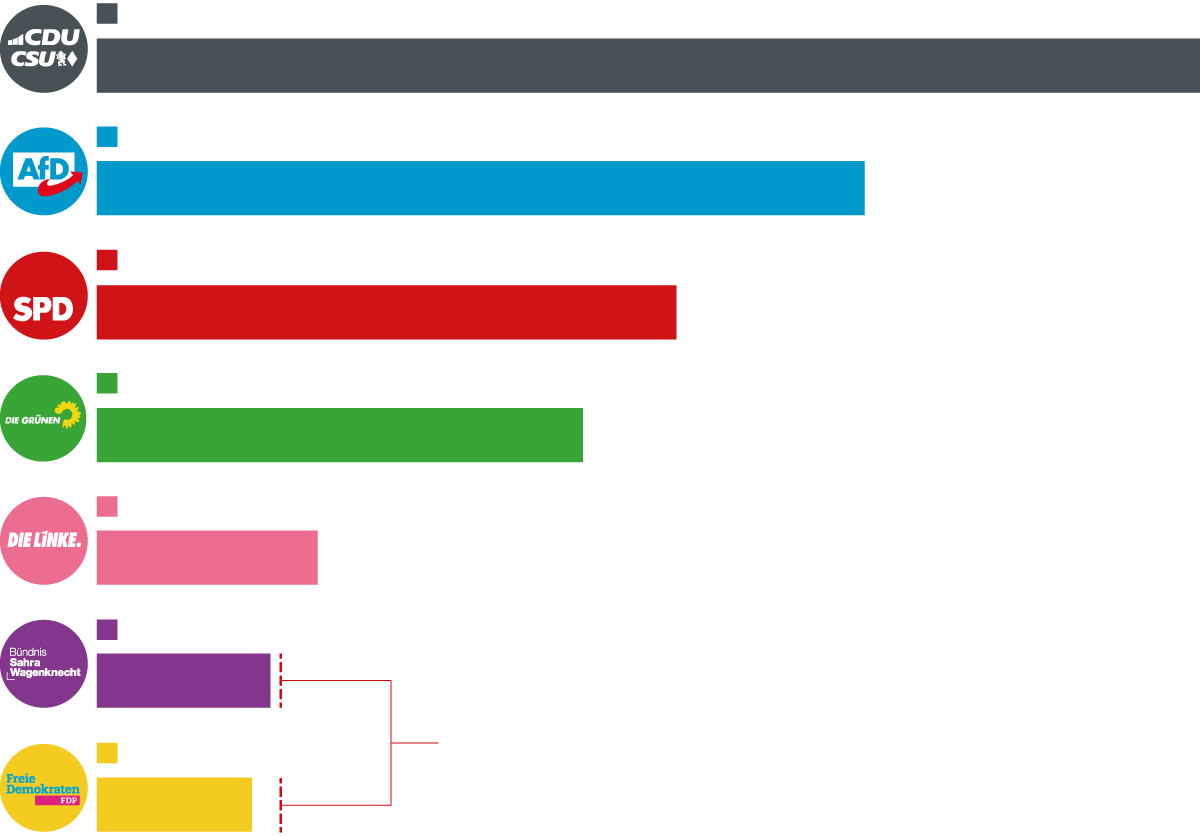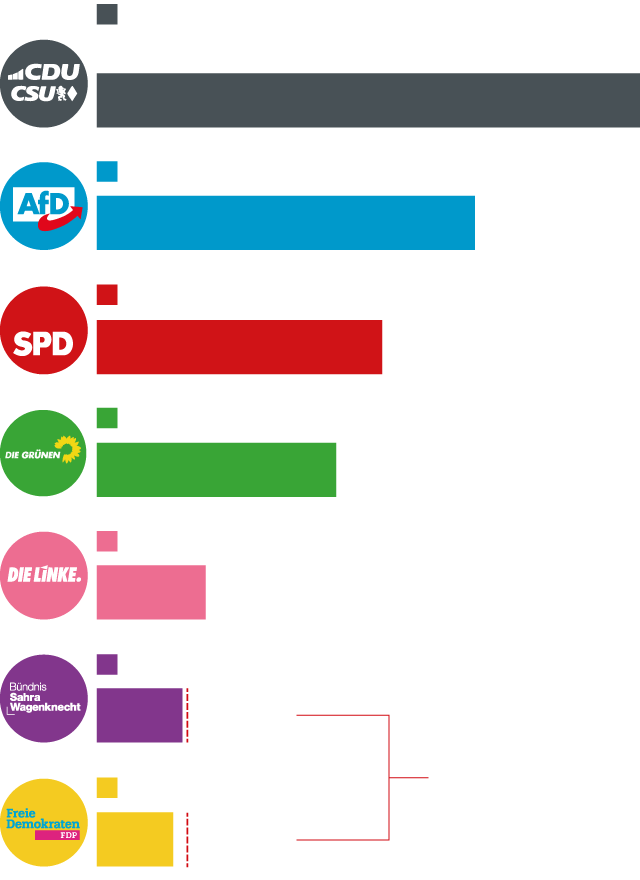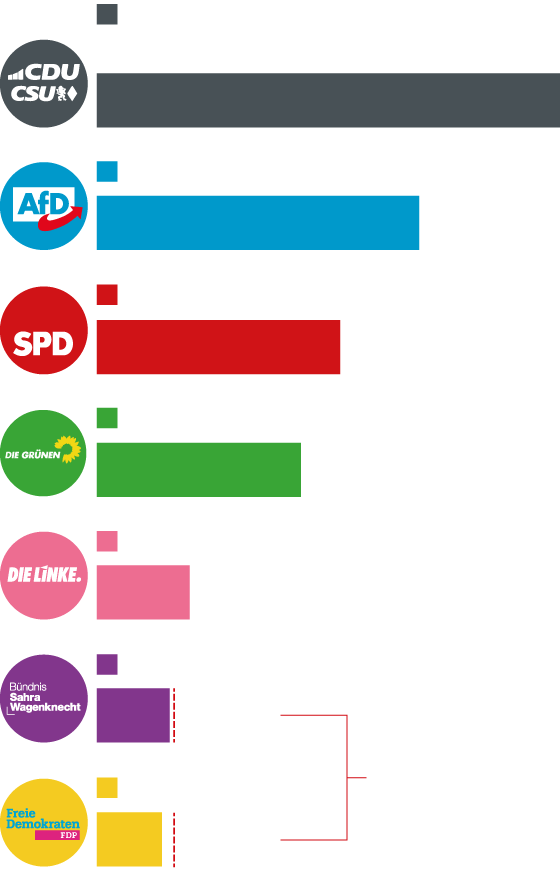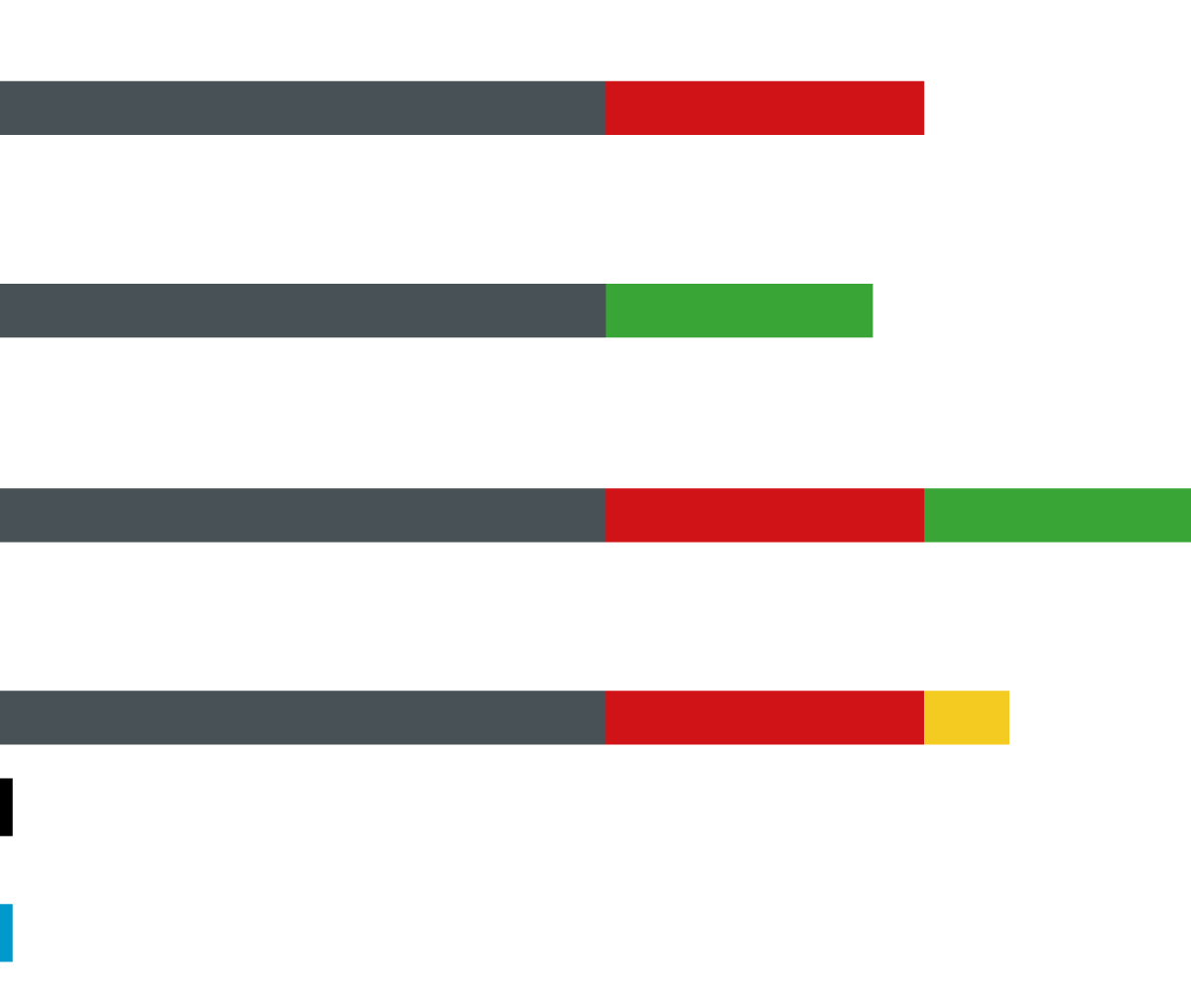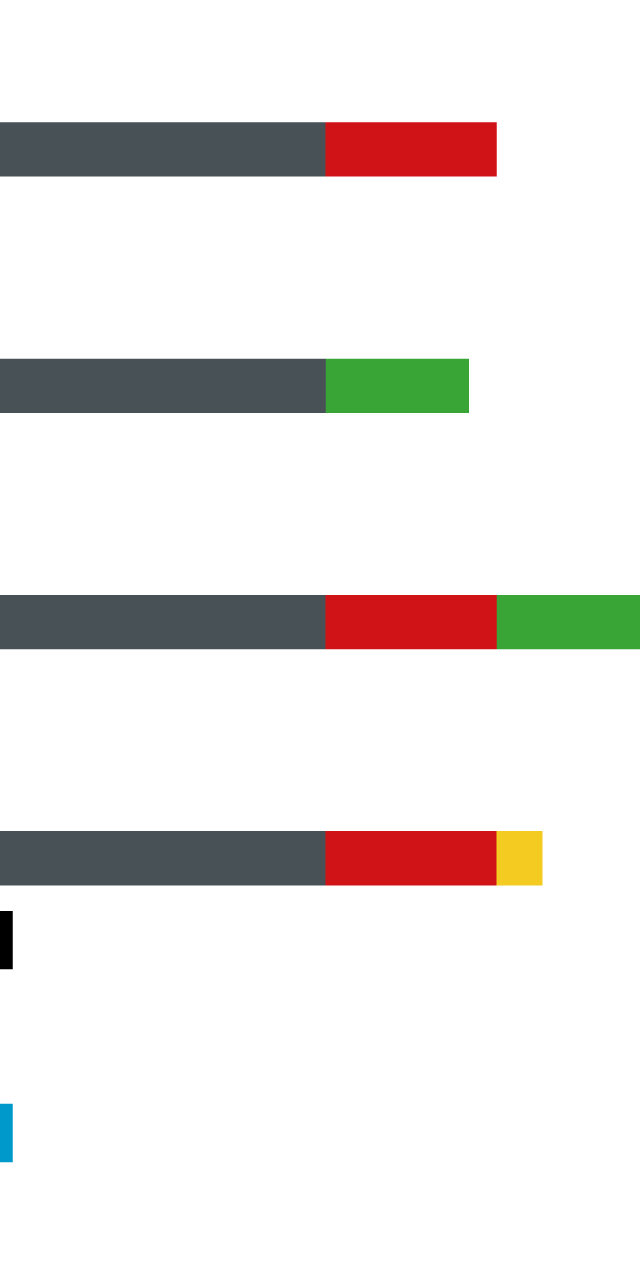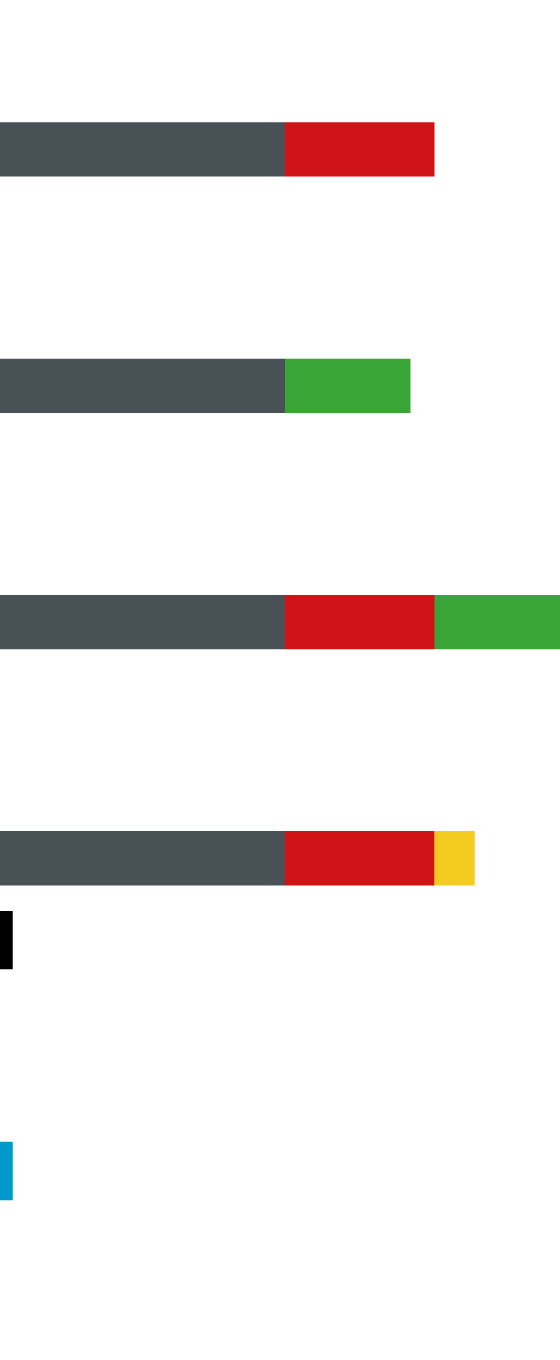Election guide: everything you need to know about the crucial elections in Germany
The CDU's victory seems clear, but everything will depend on its options to form a government coalition

BerlinGovernment coalitions are the norm in Germany, which has seen them in all colours. Tonight we will know if the victory that the polls predict for Friedrich Merz's conservatives is confirmed., but election night will leave the question of what kind of coalition will be formed, if any is viable. Merz has expressed his preference for an alliance with the Social Democrats of the SPD, which is known as the Große Koalition (Grand Coalition) or with the Greens, a formula that works at the regional level, but which has never yet been tried in the federal government.
In recent days, the reproaches and the conditions for forming a government between these three parties have increased. Some prominent members of the Social Democrats ask that before agreeing to a government, the membership should be consulted. However, if he does not want to govern in a minority, Merz may end up needing both, SPD and Verds. Especially in a scenario where one of the three parties that are dancing ends up entering the Parliament. Because the key will be whether one of the small parties reaches the 5% of votes necessary to enter the Bundestag.
Polls show that the liberals of the FDP (which formed part of the Scholz government coalition with the Social Democrats and the Greens) and the BWS, which emerged as a left-wing split from Die Linke, are on the verge of achieving this. Moreover, Merz and the other parties promise to respect the cordon sanitaire and completely rule out joining forces with AfD. If the FDP and BSW do not reach 5%, their votes will be distributed proportionally among the parties that win representation, so that 40% of the votes would be enough to achieve a parliamentary majority. But if both were to gain access to the lower house, the threshold would rise to 46%, which would make a coalition government with just two parties very difficult.
If this fragmentation of the vote occurs, a period of negotiations could begin for the formation of a new tripartite government. And in any case, a close result between the conservative CDU and the far-right AfD. This would make any negotiations difficult and would shake the political foundations of Europe.
The candidates
Friedrich Merz
CDU
Although he was already the most talked-about candidate because he is leading the polls and could become the new chancellor, Friedrich Merz has grabbed all the headlines in the middle of the campaign. With a risky bet, which has cost him internal criticism even from the former chancellor Merkel and massive mobilizations, he accepted the votes of the extreme right in the Parliament and broke the cordon sanitaire. He is known for having a sharp tongue and nerve, but also for being a persistent politician. After Merkel won the party leadership, he stepped away from politics and made a lot of money as a lawyer. Now that his turn has come, he has promised that he will not agree on a government or laws with AfD and wants to join forces with "those who help to make the economic and immigration transition that the country needs." He personifies the CDU's shift to the right and has promised permanent immigration controls at the borders. He has a classic conservative discourse and does not talk about feminism. In addition, he has a team made up only of men. He wants to reform the welfare state and regain Germany's leadership in Europe.
Alice Weidel
AfD
She does not have the profile that one would expect from the candidate of the most successful far-right party in Germany since Nazism: Alice Weidel is a lesbian, has two adopted children with her partner, originally from Sri Lanka, and lives in Switzerland. She has a doctorate in economics and has studied and worked in many countries, including China. Before entering politics, she worked at Goldman Sachs. Weidel proposes leaving the EU, abolishing the euro and ceasing support for Ukraine, and is in favour of negotiations between Trump and Putin to end the war. During the campaign she has advocated "re-emigration": mass deportations, also of citizens with German passports who have foreign roots. An investigative report revealed that this idea had been planned in a secret meeting and that thousands of Germans took to the streets to reject it. The movement against AfD continues to grow. The cordon sanitaire will prevent them from governing, but their momentum has shaken up the traditional parties and many people are wondering what will happen in four years if they continue to attract voters, also among the youngest.
Olaf Scholz
SPD
He is the most underrated chancellor and is running against all odds. Many critics hold him responsible for Germany's loss of political and economic stability. He managed to turn the polls around in the last election, but this time they are going badly. He could lead the SPD to its worst result in a federal election ever. Scholz joined the Social Democratic Youth Party at the age of 17. Before reaching the top of the federal government, he was Minister of Labor and Social Affairs and Finance in Merkel's last government. He also served as mayor of Hamburg, the second most populous city in the country, between 2011 and 2018. The SPD proposes boosting investment with public debt, raising taxes on the richest, raising the minimum wage to 15 euros per hour (currently 12.82) and hiring qualified workers. Despite ideological differences, the SPD and CDU have experience of governing together and this time the so-called Grand Coalition remains one of the most plausible options.
Robert Habeck
Greens
He is one of the targets of the far right. Vice-chancellor and Minister for Economic Affairs and Climate Action in the Scholz government, he will be remembered for the controversial heating law. He wanted to ban the installation of new gas or diesel boilers de facto, but had to back down due to opposition from society and his coalition partners. Habeck has had to weather the energy crisis triggered by the halting of Russian gas imports. He is committed to renewable energy, which last year covered 63.4% of the country's supply, and is opposed to nuclear energy. Before entering politics, Habeck was a writer, among other things children's books. Now he is one of the great defenders of Ukraine and believes that Germany should dedicate at least 3% of GDP to defense. The Greens, with much more conservative positions than their allies in southern Europe, prioritize the fight against climate change and the restructuring of the economy, and are committed to green economy projects. Although many things separate them, Merz could need them to form a government.
The most decisive issues
Economy and Industry
Europe's largest economy has been in recession for two years and everything points to a continued negative trend in 2025. It remains at the top of the world power rankings, with the fourth highest GDP, but it is losing a layer of competitiveness with each wash. One of the main reasons for this decline is the drop in the number of exports of German products. All over the world, cars, chemicals and household appliances made in Germany are no longer being bought as often. Many companies have been unable to find alternatives to the fierce competition from countries such as China. Experts point to the public debt limit as a brake on essential investments to revive the economy, such as the renovation of aging public infrastructure. All this has driven up the cost of living. Inflation soared with the energy crisis of the war in Ukraine and then moderated, but remains high: 2.2% last year.
Immigration and refugees
It has become a major campaign issue, especially in the wake of recent attacks, some of them carried out by refugees whose asylum applications had been refused. The far right has taken advantage of this and anti-immigration rhetoric has spread to the other parties. All those with a chance of entering Parliament, except the left-wing Die Linke, are in favour of increasing deportations. Germany is a far cry from the fact that in 2015 it received more than a million Syrian refugees. Now the reception of new arrivals is one of the main concerns of citizens. The number of applications fell by 34% in 2024, but the country remains the main destination for asylum in the EU. Scholz introduced random border controls last summer and Merz has promised to make them permanent. While racism is growing, experts warn that there is no correlation between the increase in immigration and crime. And they point out that attracting talent is key for the economy.
Climate emergency
It was the big issue in the 2021 election, and this time it has barely been talked about. This has been the warmest January on record, but even the Greens have not dedicated many election posters to the fight against climate change. However, a recent poll showed that 53% of Germans want a government that fights it. Merz promises to undo some of the current government's climate measures. Climate activists are organized and continue their protests.
The impacts of the Ukraine war
Germany's role in the three-year war in Ukraine is a polarizing issue. Because of its Nazi past, there is much reluctance to send troops and long-range missiles. With negotiations between Trump and Putin to end the conflict having sidelined Europe, the discussion has been revived. Germany is Ukraine's main donor of military aid to Europe, and the Russian attack has led Scholz to make a U-turn in defense policy because Ukraine marks "a turning point."
Digital lag and too much bureaucracy
It is surprising that the country is at the tail end of Europe when it comes to digitisation. Too much bureaucracy, little investment and a culture accustomed to traditional processes mean that the internet in Germany is slow. And paperwork, faxes and post are the order of the day. Until now, there has been no strategy to digitise the country. Merz proposes creating a specific ministry and the once-only principle, so that citizens only have to provide their data once.
